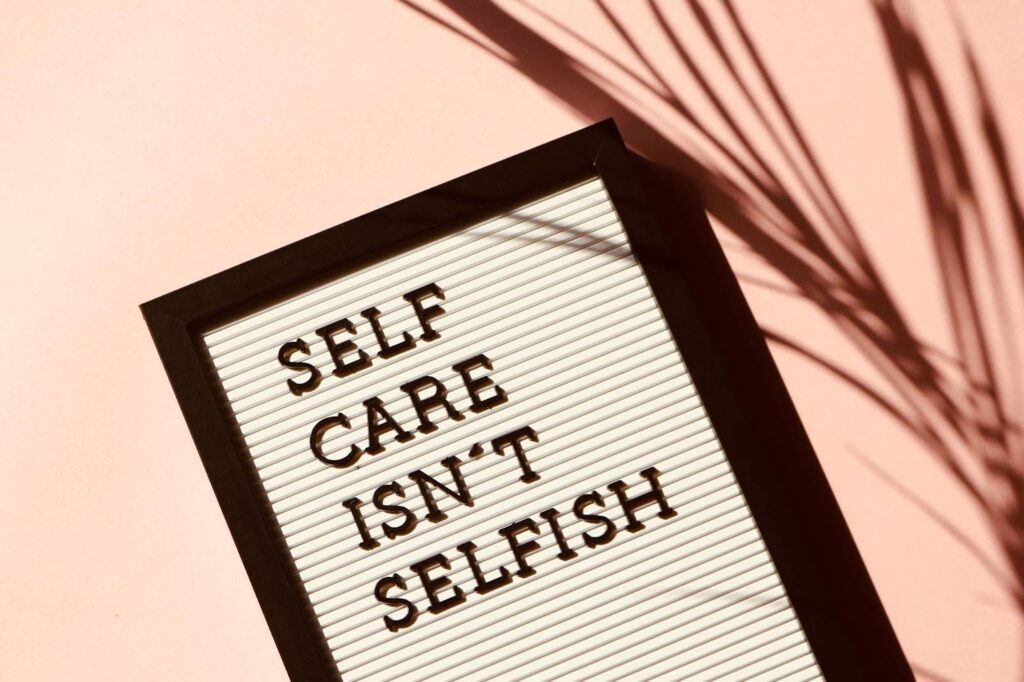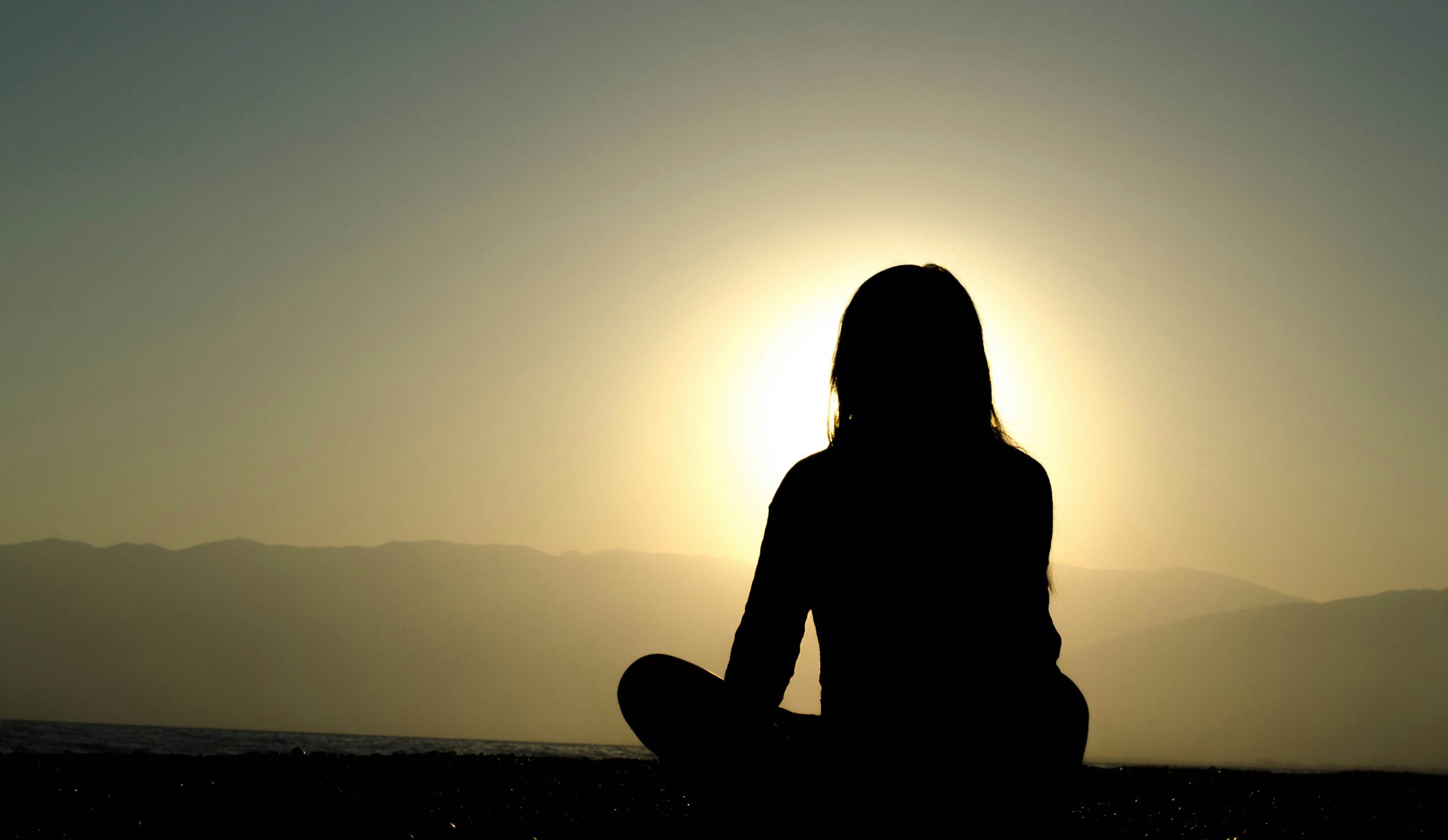Mental health is just as important as physical health to our overall well-being. One way to help manage your mental health is by using coping skills. Coping skills help you cope or deal with emotions, thoughts, and actions in a healthy way. These skills are great to have when you are going through periods of hardship. It’s normal to need coping skills more often at certain times in your life; it’s helpful to know which skills work best for you. You can create a list of coping skills that work best for you to refer to in times of crisis.
Emotional
Emotional coping skills help us express or identify our emotions toward certain things. Some of these activities include:

- Practicing Mindfulness and Meditation
- Mindfulness and meditation are two coping skills that can help regulate our emotions. Mindfulness is a practice of focusing on the present moment. It teaches us to be aware of our thoughts while maintaining a nonjudgmental attitude toward them. Mindfulness can be practiced at any time throughout the day. Meditation is the practice of focusing your attention on something specific. The purpose of meditation is to decrease negative thoughts.
- Journaling
- Journaling is a powerful tool to learn about our emotions. We can use specific journaling prompts that aim to clarify the emotions we are feeling. There are free journal prompts online that ask questions and help people focus on specific issues they are going through.
- Another way to use journaling as a coping tool is to use a gratitude journal. Gratitude journals help train our brains to focus on good rather than bad things.
- Watching Movies that Provide Emotional Catharsis
- Watching movies or television shows can elicit a specific emotion (such as humor, sadness, or hope). These movies can help bring emotional release to people who watch them.
- Using Mood Tracking
- Many websites and applications can be used to track your mood. Tracking your mood over a period of time helps discover triggers that may affect you. You can show these records to your treatment team so they can get insight into your day-to-day life. This data helps evaluate if your mental health concerns are improving or getting worse.
Physical
Physical coping skills are activities that engage our bodies in some way. These coping skills are helpful if you are having a hard time feeling connected to your body.
- Exercise
- Exercise has many benefits for mental health, including improvement in mood, sleep, and stress management. If someone enjoys a specific exercise or sport, this can be used as a hobby as well. In addition, exercise can also be a form of socialization if you are a part of a gym or team sport.
- Progressive Muscle Relaxation
- Progressive muscle relaxation is a useful resource to relax our bodies. It’s a technique that involves tensing up specific muscle groups (while taking in a breath) for about 10 seconds. After this, you relax your muscles as you exhale. It’s good to give your muscles about 20 seconds before repeating the exercise. This is a great way to promote mental and physical relaxation.
- Breathing Techniques
- Breathing techniques can be helpful coping skills for people who struggle with anxiety or stress. These techniques teach us to focus on our breath, which allows us to regulate our nervous system into a more relaxed state.
- One common breathing technique is diaphragmatic breathing. If you are able, you can try this multiple times per day. You can partake in this breathing technique by following these steps:.
- Step one: Lie down with your knees in a bent position.
- Step two: Put one hand on your chest and the other on your stomach.
- Step three: Breathe through your nose and try to send your breath to your stomach. To check if you’re doing it correctly, make sure the hand on your chest isn’t moving but the one on your stomach moves with each breath.
- Step four: Allow your stomach to return to its original position as you slowly exhale.
- Use Weighted Blankets
- Weighted blankets can be used for relaxation. They work because the weight from the blanket adjusts your autonomic nervous system into “reset” mode, which helps you relax. Weighted blankets are a great tool for people who struggle with anxiety.
- Cold Therapy
- Cold exposure can improve our mood and increase feelings of alertness. Examples of cold therapy include taking a cold shower or splashing your face with cold water. This can be another helpful tool for people struggling with anxiety.
Cognitive
Cognitive coping skills are activities that focus on how we think, how our brains work, and ways to express our thoughts.
- Positive Self-Talk
- Affirmations and positive self-talk are helpful coping skills for mental health. Many mental health issues are the result of negative thoughts, beliefs, and self-talk. An example of a positive affirmation is “I am enough”. Repeating positive affirmations will retrain our brains to see ourselves in a better light.
- Cognitive Restrutruction
- Cognitive restructuring is the practice of recognizing and challenging cognitive distortions in our thoughts. It involves identifying negative thoughts and replacing them with more positive ones. Cognitive restructuring can be a helpful coping skill for people who struggle with negative thought patterns and is taught in cognitive behavioral therapy (CBT).
- Organization
- Spend time organizing your space in a way that works best for you. Organization is a great coping skill because it helps decrease feelings of anxiety as a result of feeling more prepared.
- Learn a New Skill
- Learning a new skill allows us to fully immerse ourselves in something new. When we challenge ourselves to learn a new skill, we are also promoting the formation of new connections between nerve cells in our brains. This allows our brain to create new pathways and work more efficiently.
- You might consider learning a new language or instrument or taking a course on something that interests you. Many websites can be used to take courses, including Udemy, Skillshare, and Coursera.
Social
Being social has many benefits for our mental health. It’s important to maintain relationships in our lives in whatever ways we can.
- Calling or Writing Friends
- If you are feeling lonely or isolated, it can be helpful to reach out to a loved one. Your loved ones are there to support you and be a sounding board when you need insight. In addition to calling or texting your loved ones, you could also try writing them a letter. Sending paper mail isn’t incredibly common anymore, so this can be a fun activity for everyone involved.
- Joining Support Groups
- Support groups are another great way to maintain socialization and meet new people. These groups provide the unique ability to find people who are going through the same struggles you are. There are many support groups centered around helping specific types of people, so there is something for everyone.
- Setting Boundaries
- It’s important to set boundaries in our relationships to make sure that we are protecting our peace. It can be challenging at times to set boundaries. However, with time and practice setting boundaries becomes easier.
- Evaluating Relationships
- When you are looking for ways to cope with your mental health, you may need to consider distancing yourself from certain people in your life. This doesn’t have to be a permanent action. There are times during our lives when we may need to step away from relationships that ask for too much of us. If you have a therapist, they can help you evaluate your relationships to see which ones may not be healthy for you.
Creative
Being creative in any form can be a great coping skill for people who enjoy expressing their artistic abilities. Even if you do not enjoy being creative, you can still try creative coping skills. You may discover a new passion or creative outlet that you enjoy.. You also may discover different ways of being creative that you haven’t tried before.
- Creating Art
- Art can be a helpful coping skill to use when our emotions overwhelm us, but artistic expression can mean different things to different people. Some art forms people may use as a coping skill include painting, drawing, sculpting, scrapbooking, crafting, and photo/video editing. You don’t have to be naturally artistic to use art as a coping skill. All that matters is that the activity is helpful for you and managing your emotions.
- Creative Writing
- Writing can be a powerful tool to express ourselves and transfer our thoughts to something tangible. Creative writing can be a therapeutic practice for some. This type of writing can be used to write essays, short stories, poetry, or novels.
Self-Care
Self-care coping skills are activities that focus on taking care of yourself, which is incredibly important in maintaining mental health.

- Creation of Self-Care Routines
- Creating self-care routines is a great way to incorporate them into your daily life. For example, you can create a morning routine that includes completing hygienic tasks and skincare. You could also include journaling, breakfast, and taking a walk. The most important thing when creating these routines is making sure they are realistic and enjoyable. This will help you to stick to them long-term. Being gentle with yourself is important when incorporating new routines and habits. They might not be perfect at first, but with time they will become second nature.
- Self-Care Box
- Another way to organize your coping skills is by creating a self-care box. Your self-care box can contain easily accessible items that help you during times of crisis. You can fill your self-care box with things that help you cope with difficult emotions. If you don’t want to create a physical box you can create a list on your phone or a notepad.
- Self-Care Ideas
- Any activity can serve as self-care if it encourages you to slow down and take care of yourself. If you’re not sure what self-care practices will work best for you, it’s best to try a few options.
- Examples of self-care include taking a walk, getting enough sleep, listening to music, practicing gratitude, organizing, engaging in hobbies, and meditating.
- Pets
- Animals can help decrease stress and improve our emotional regulation. They have a way of sensing our troubles. Sometimes we need a little unconditional love, and pets are a great place to get it.
- Positive Podcasts and Documentaries
- Listening to or watching inspiring content can be a helpful coping skill for those struggling with depression or hopelessness.
- There are some podcasts and documentaries that focus on specific mental health concerns, which can provide inspiration and relate to particular challenges people may face.
Coping skills are powerful tools that help us cope with our emotions or struggles in life. These skills can be divided into emotional, physical, cognitive, social, creative, and self-care. There are countless additional coping skills beyond those covered in this list. Now that you understand what coping skills help with emotions and thoughts, you can begin creating your own toolkit.
It can be helpful to try multiple different coping skills to see which ones work best for you. We encourage you to try as many as you can. If you have tried multiple coping skills and you still are struggling with your mental health, you may need to consider seeking professional help. Seeking help with your mental health is not a sign of weakness but of strength. If you are ready to work with someone today, you can reach out to us here. We’re here to support your journey toward healing.
Online Therapy in Florida, Idaho, South Carolina, and Utah
At Calming Transformations Counseling, our therapists understand that reaching out for help is difficult, especially when dealing with anxiety, stress, depression, or relationship issues. We can help through online therapy in Florida, Idaho, South Carolina, or Utah or walk and talk therapy in Hillsborough County, Florida. Book an appointment or contact us today to schedule a session and take the first step toward a healthier, happier life. Remember, your mental health is important—take the time to care for yourself.
